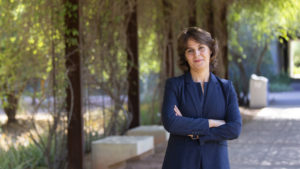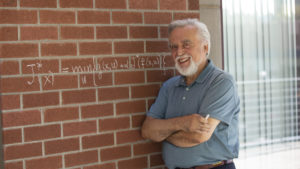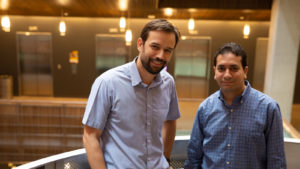The Fulton Schools welcome new faculty for 2019-2020
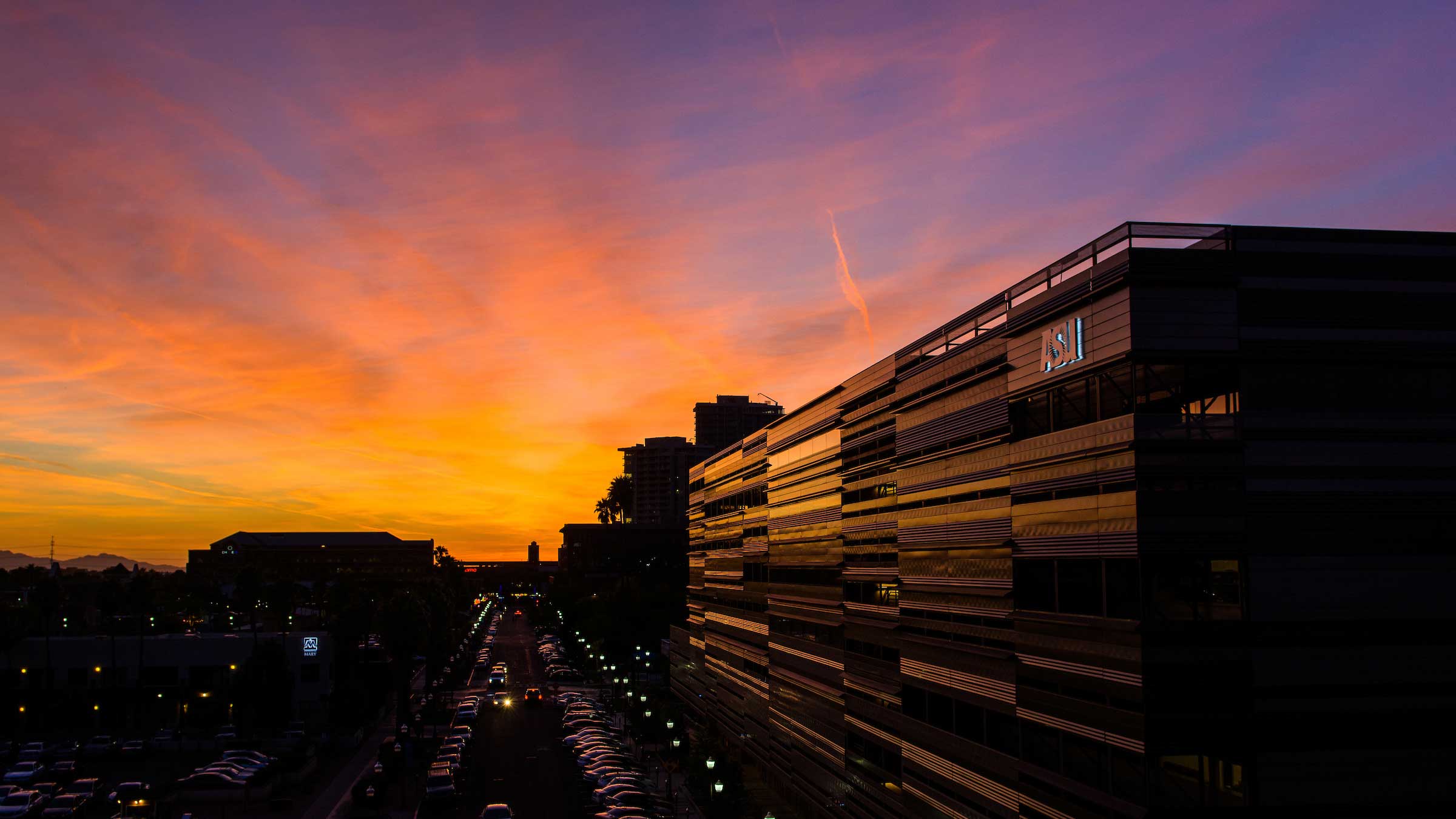
Thirty new researchers, instructors and inventors have joined ASU Engineering’s world-class faculty. Bringing with them a breadth of research, teaching and industry experience, they join a community of 355 tenured/tenure-track faculty members committed to revolutionizing engineering education, conducting use-inspired research and developing solutions that will transform society.
Professors
Professors
Alexandra Navrotsky
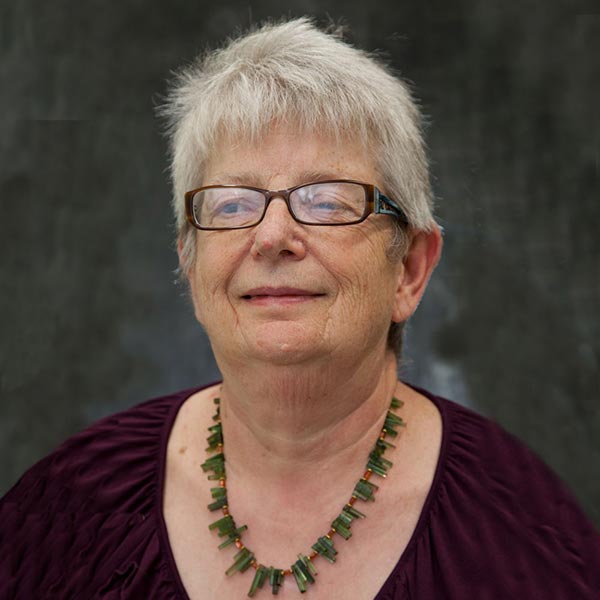
Alexandra Navrotsky
Professor
PhD, physical chemistry, The University of Chicago, 1967
Areas of expertise and bio
Expertise: Relating microscopic features of structure and bonding to macroscopic thermodynamic behavior in minerals, ceramics, and other complex materials
Alexandra Navrotsky was educated at the Bronx High School of Science and the University of Chicago (B.S., M.S., and Ph.D. in physical chemistry). After postdoctoral work in Germany and at Penn State University, she joined the faculty in chemistry at Arizona State University, where she remained until her move to the Department of Geological and Geophysical Sciences at Princeton University in 1985. She chaired that department from 1988 to 1991 and was active in the Princeton Materials Institute. In 1997, she became an interdisciplinary professor of ceramic, earth, and environmental materials chemistry at the University of California at Davis and was appointed Edward Roessler Chair in Mathematical and Physical Sciences in 2001. She served as interim dean of the University of California Davis College of Letters and Sciences Department of Mathematical and Physical Sciences from 2013 to 2017. She organized the NEAT (Nano and New Materials in Energy, the Environment, Agriculture, and Technology) research group in 2002 and has directed the Peter A. Rock Thermochemistry Laboratory since her arrival in 1997.
Her research interests have centered about relating microscopic features of structure and bonding to macroscopic thermodynamic behavior in minerals, ceramics, and other complex materials. She has made major contributions to both mineralogy/geochemistry and to solid state chemistry/materials science in the fields of ceramics, mantle mineralogy and deep earth geophysics, melt and glass science, nanomaterials and porous materials. She has developed unique high temperature calorimetric techniques and instruments and her laboratory the Peter A. Rock Thermochemistry Laboratory, collaborates with scientists all over the world.
Honors include an Alfred P. Sloan Fellowship (1973); Mineralogical Society of America Award (1981); American Geophysical Union Fellow (1988); Vice-President, Mineralogical Society of America (1991-1992), President (1992-1993); Geochemical Society Fellow (1997). She spent five years (1986-1991) as Editor, Physics and Chemistry of Minerals, and serves on numerous advisory committees and panels in both government and academe. She was elected to the National Academy of Sciences in 1993. In 1995 she received the Ross Coffin Purdy Award from the American Ceramic Society and was awarded the degree of Doctor Honoris Causa from Uppsala University, Sweden. In 2002 she was awarded the Benjamin Franklin Medal in Earth Science. In 2004, she was elected a Fellow of The Mineralogical Society (Great Britain) and awarded the Urey Medal (the highest career honor of the European Association of Geochemistry). In 2005, she received the Spriggs Phase Equilibria Award. In 2006, she received the Harry H. Hess Medal of the American Geophysical Union. In October 2009, she received the Roebling Medal (the highest honor of the Mineralogical Society of America). In 2011, she became a member of the American Philosophical Society. In 2016 she received the Victor M. Goldschmidt Award from the Geochemical Society and the W. David Kingery Award from the American Ceramic Society. The World Academy of Ceramics elected Prof. Navrotsky to Science Professional Member in 2017.
Recently, a newly discovered mineral K2Na10(UO2)3(SO4)9·2H2O was named Navrotskyite in her honor.
Leila Ladani
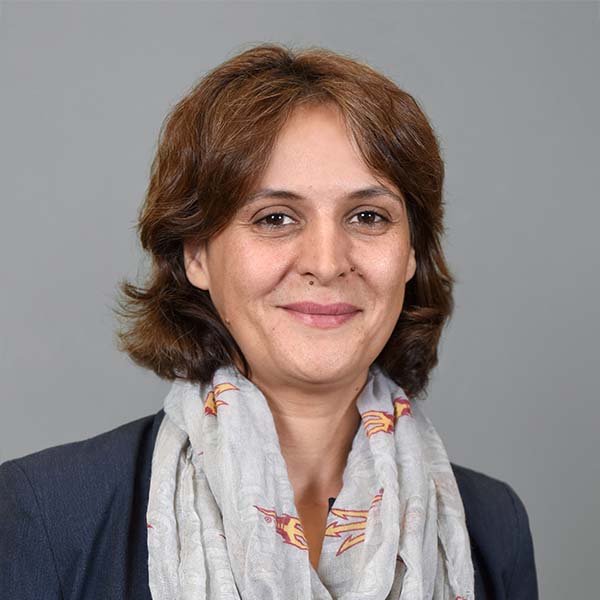
Leila Ladani
Professor, Aerospace and mechanical engineering
PhD, mechanical engineering, University of Maryland-College Park, 2007
Areas of expertise and bio
Expertise: Mechanics of solid materials and manufacturing innovation, focusing on additive manufacturing and 3D printing applications
Research Interests
Manufacturing process simulation and modeling and experiments, Additive manufacturing, Micro/nano manufacturing, Microelectronic packaging, Application of AI in manufacturing, Mechanic of metallic materials, Materials characterization, Fatigue and damage modeling and simulation
“Analytical and goal-oriented” are the dominant character traits Leila Ladani says best describe her.
She recalls exhibiting those proclivities at an early age when she was drawn to math and science in her first years of school — and in later years when she chose to pursue an engineering career.
From such personal characteristics sprung a “passion for learning and love for education,” Ladani says, that have led to success in her career as a scientist, researcher and leader in her profession.
More recently, that zeal guided Ladani’s decision to accept an offer to become the director of The Polytechnic School, one of the seven schools in the Ira A. Fulton Schools of Engineering at Arizona State University. The Polytechnic School is home to seven academic programs, more than 5,500 students and 200 faculty and staff members.
In her analysis, ASU is taking academics and research in the directions they need to go to help the world overcome its numerous and varied challenges.
“I chose ASU because of its culture, which promotes innovation and access to education for all,” Professor Ladani says. “This is a place where change and progress is expected and encouraged.”
Especially enticing to Ladani is the progress being made toward fulfilling ASU President Michael Crow’s vision for the university.
“ASU is a world-class research institution that is also providing a high-quality education and research opportunities to a wide spectrum of students from many different backgrounds,” she says. “I find that inspiring.”
Ladani sees another encouraging sign in the university’s break from traditionally strict separation of academic disciplines and research endeavors. That multidisciplinary approach to both education and research is in ascendance at The Polytechnic School, she says.
“There are engineers working with psychologists to come up with ways for soldiers to achieve higher performance on the battlefield,” she says. “That is only one example of research collaborations that have the potential to be transformative for society in the near future.”
Dimitri Bertsekas
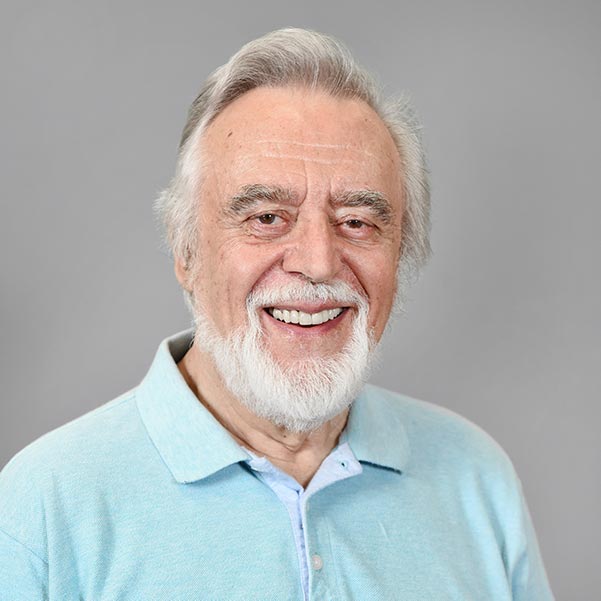
Dimitri Bertsekas
Professor
PhD, system science, Massachusetts Institute of Technology, 1971
Areas of expertise and bio
Expertise: Optimization, reinforcement learning, machine learning, dynamic programming and data communication
Throughout his career, Dimitri Bertsekas has enjoyed engineering’s rich variety of challenges and how many of them can be viewed through a “unifying mathematical lens.”
An avid researcher, author and educator, Bertsekas has used this approach to contribute to advances in multiple research areas, including optimization, reinforcement learning, machine learning, dynamic programming and data communications.
In fall 2019, he joins the Arizona State University faculty as Fulton Chair of Computational Decision Making in the School of Computing, Informatics, and Decision Systems Engineering, one of the six Ira A. Fulton Schools of Engineering at ASU.
“I found ASU to be an exciting place for research where I can work with outstanding colleagues,” says Bertsekas.
Bertsekas has spent much of his career — since 1979 — as a faculty member at the Massachusetts Institute of Technology, where he held the position of McAfee Professor of Engineering.
At ASU, he’ll be teaching research-oriented seminars on the topics of optimization, optimal control, machine learning and artificial intelligence.
His main research focus at present is reinforcement learning — “a field that addresses large and challenging multistage decision problems, often with the use of neural networks and self-learning.”
Associate professor
Associate professor
Hasan Ozer
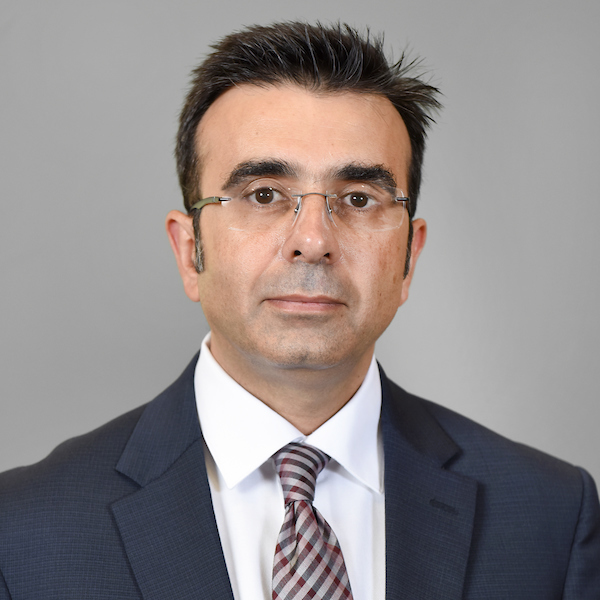
Hasan Ozer
Associate professor
PhD, civil engineering, University of Illinois at Urbana-Champaign, 2011
Areas of expertise and bio
Expertise: Construction materials focused on pavement material characterization, pavement design, rehabilitation and preservation
Hasan Ozer’s idea of an enjoyable endeavor is implementing computational mechanics tools for structural performance modeling of civil infrastructure.
Another gratifying pursuit: developing sustainability assessment models to understand the interaction of the environment and transportation infrastructure.
Ozer expects to demonstrate to his students not only the value of such work but the exhilaration of doing it.
“One thing I tell my students at the beginning of each class is to have fun and enjoy the semester with me,” Ozer says.
The fun includes games and activities designed to reveal fascinating challenges facing today’s transportation engineers.
For instance, infrastructure must be adapted to ensure traffic safety and efficiency as more autonomous and connected vehicles show up on our roads. There’s also a pressing demand to make that infrastructure more sustainable while keeping costs from escalating.
Ozer wants students to realize how meeting such needs “is vital for nations’ economies and people’s lives.” And he hopes they will come to share his passion for using advanced computational methods, modeling and mathematics to provide solutions to complex engineering problems.
He apparently succeeded at motivating students he has taught since 2012 at the University of Illinois at Urbana-Champaign and the Illinois Center for Transportation. Those students repeatedly ranked him among the most excellent UIUC teachers.
Ozer’s Arizona State University students will benefit from his experiences as chair of the American Society of Civil Engineers Highway Pavement Committee and as a member of the Transportation and Development Institute since 2014, as well as a national standing committee member with in the Transportation Research Board since 2018.
He also co-chaired the ASCE and TDI’s International Airfield and Pavement Conference in 2017 and again this summer.
Ozer says he was drawn to ASU because it is “one of the few schools that has made a commitment to the integration of sustainability into the engineering discipline,” and by the added attraction of having “a great transportation and pavement engineering program.”
Assistant professors
Assistant professors
Jia Zou
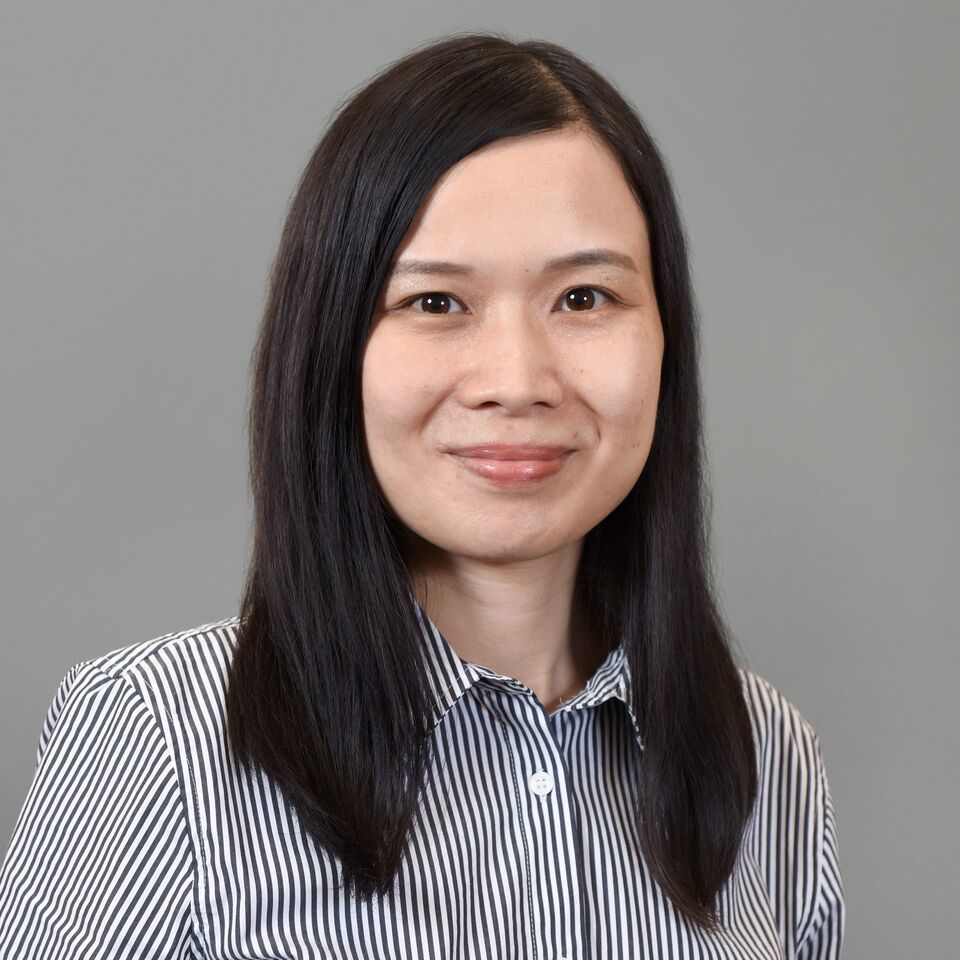
Jia Zou
Assistant professor
PhD, computer science, Tsinghua University, 2008
Areas of expertise and bio
Expertise: Database systems, systems for big data and machine learning
For Jia Zou, her passion for scientific research was solidified the day she entered an international mathematical contest in modeling with two college classmates. The competition, sponsored by the Consortium for Mathematics and Its Applications, required each team to build a mathematical model to investigate a real-world issue.
“We won a meritorious prize, and working with a great team on an exciting problem ushered me into a lifelong love for research,” say Zou.
After earning her doctoral degree, Zou worked as a researcher at IBM Research-China.
“During that time, I had the opportunity to talk to IBM customers from various industries such as telecom, banking, internet companies and so on,” says Zou. “All the real-world use cases I’ve learned formed a clear vision for the future of data-intensive systems.”
Zou then joined Rice University as a research scientist.
“During my time at Rice, several research papers have been published in VLDB and SIGMOD, which are the two flagship conferences in the big data research community, including an honorable mention in VLDB 2019. The recognition received for our research products further encourages me to stay.” says Zou.
At ASU, Zou’s research will focus on database systems and systems for big data and machine learning.
“I choose this area for my research because data is collected at a sharply rising speed in this more and more digitally connected world,” says Zou. “The total volume of data collected on Earth will reach 44 zettabytes by next year (one zettabyte equals 1 trillion gigabytes). Every industry needs to learn how to swim in such an ocean of data, and I want to help them.”
This semester, Zou will focus her research on providing deterministic performance for machine learning systems and applications.
“That means a user can expect the completion time of their machine learning applications falls in a pre-specified performance envelope,” says Zou. “I’m excited, because this is super important in emerging internet of thing applications, such as automatic car driving and health care, to avoid loss of lives and money due to delayed response.”
Ruijie Zeng
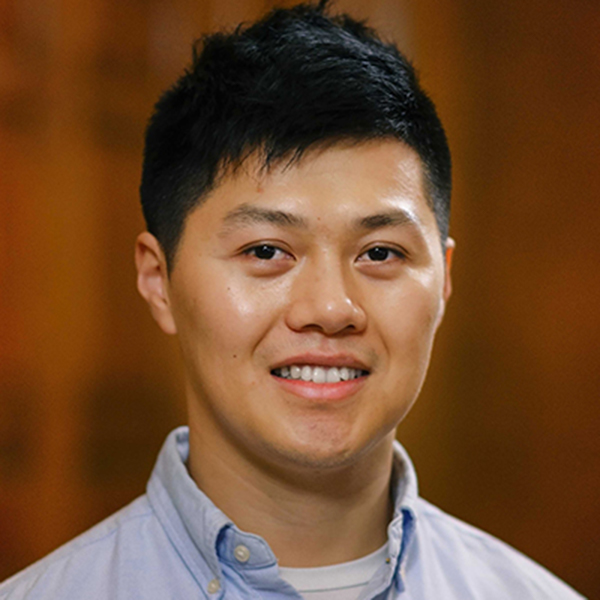
Ruijie Zeng
Assistant professor
PhD, civil and environmental engineering, University of Illinois at Urbana-Champaign, 2017
Areas of expertise and bio
Expertise: Hydrology, water resources management, numerical simulation, coupled natural-human systems
Ruijie Zeng’s hometown played a big role in his choice of a career.
The site of the city of Dujiangyan, China, was originally developed more than 2,200 years ago as an irrigation and flood control district. The project is still in use today, providing water and flood protection for millions of people.
That “engineering miracle,” as Zeng describes it, motivated him to study water resource systems.
Today his research aims at “understanding how climate variability and human decisions interact with each other to shape the hydrologic regimes.”
That goal is critical today because of the increasing impacts of human activities on climate, the natural environment and the hydrologic cycle.
“As human interferences on natural systems become more frequent and more dominant,” Zeng says, “we cannot understand the hydrologic cycle without the anthropogenic (societal) components.”
Zeng sees Arizona State University as an ideal place to do his work because the Phoenix area is in a desert region that “provides a perfect real-world site to study the interactions of climatic, environmental and social drivers for water resources management,” he says.
He was also drawn to ASU by its “great emphasis on breaking the barriers” between academic disciplines and promoting sustainability, which open opportunities for productive research collaborations.
“Water resources management is interdisciplinary,” Zeng says, “so you can talk to and learn from experts from different fields.”
Zeng says students should come to his classes “motivated to learn cool stuff” — for instance, the application of the advanced tools in use today in his field, especially machine learning, statistics and scientific computing.
Outside of teaching and research, Zeng pursues interests that include swimming, playing the flute and driving on canyon roads.
Yingzhen Yang
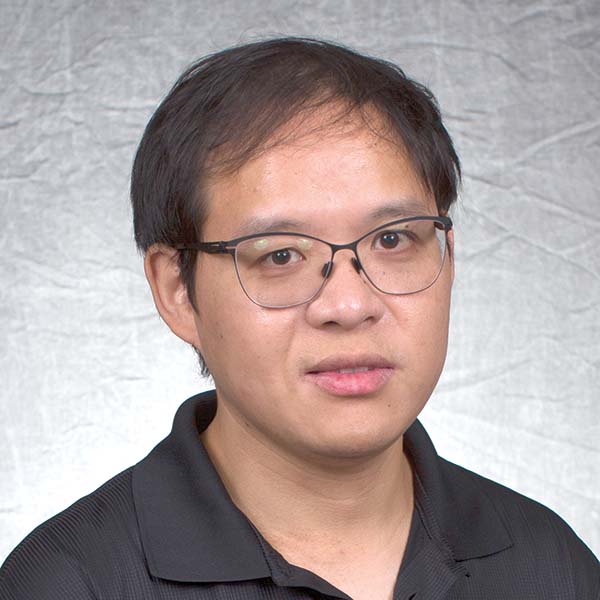
Yingzhen Yang
Assistant professor
PhD, electrical and computer engineering, University of Illinois at Urbana-Champaign, 2016
Areas of expertise and bio
Expertise: Statistical machine learning, deep learning and theoretical computer science
Yingzhen Yang became interested in engineering when he implemented fast-searching algorithms as a high school student.
“I chose to perform research in machine learning and deep learning because they are very interesting areas that combine the best of statistics and multiple areas of fundamental mathematics, physics and computer science,” says Yang.
He sees machine learning and deep learning as “the driving force for modern artificial intelligence,” he says.
“I want to teach courses in these areas because I hope more students will learn the basics and even pursue careers in these areas,” says Yang. “Machine learning and artificial intelligence are particularly important in science and engineering nowadays.”
At ASU, Yang will research principles and applications of deep learning, especially optimization and generalization of deep neural networks and compression of deep neural networks.
Research to advance the optimization and generalization of deep neural networks is fundamentally important to solving problems in deep learning, and can significantly enhance the understanding of deep neural networks and facilitate their broader application in various scenarios.
“I will also research AutoML, a hot topic in the deep learning community that automatically searches for optimal neural architecture and eliminates the need for designing neural architecture manually for each task,” says Yang. “AutoML models are being incorporated into my research in compression of deep neural networks.”
“I am deeply impressed by ASU’s strong commitment to research and innovation,” says Yang. “It is a great university for me to advance my research career.”
In his spare time, Yang loves traveling and playing badminton.
Tianfang Xu
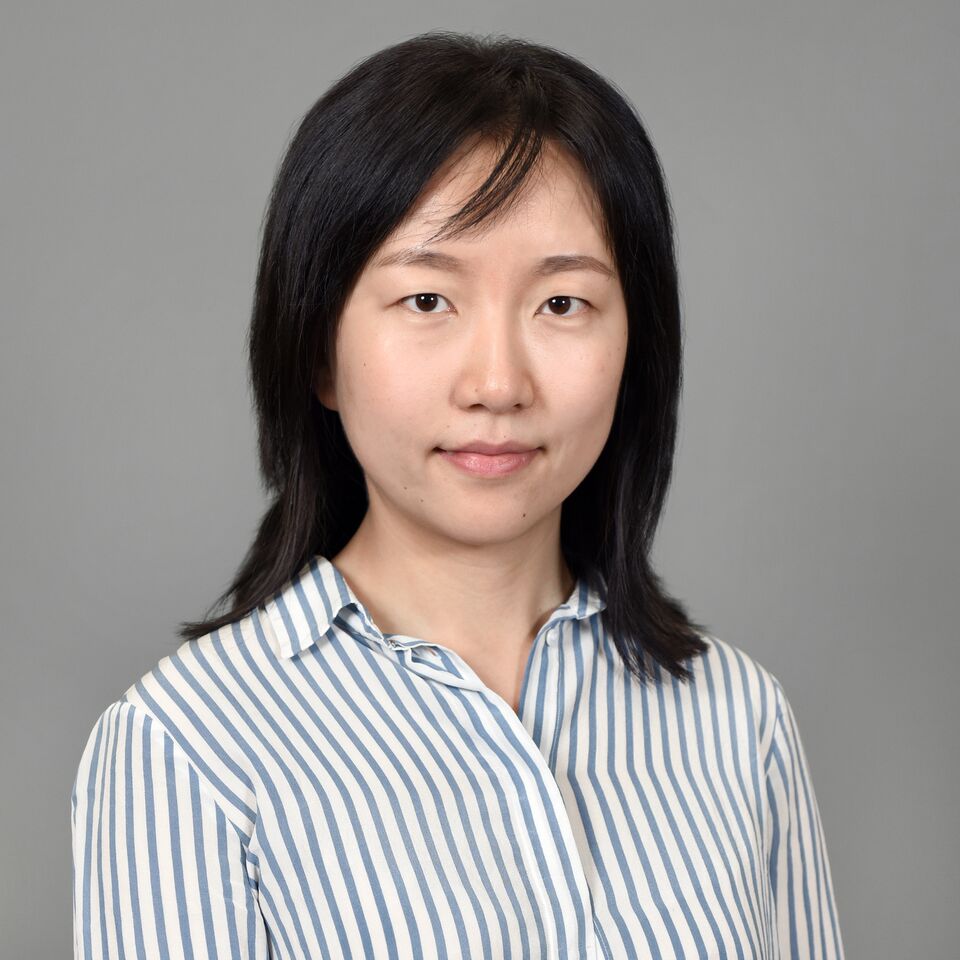
Tianfang Xu
Assistant professor
PhD, civil engineering, University of Illinois at Urbana-Champaign, 2016
Areas of expertise and bio
Expertise: Numerical simulation of groundwater flow and solute transport, groundwater sustainability, uncertainty quantification and applications of machine learning in hydrology
Be prepared to do math.
That’s the message Tianfang Xu has for students who will take her courses in fluid mechanics, groundwater hydrology and a new graduate course she plans to develop on groundwater modeling.
“I believe that an in-depth understanding of the mathematics underlying physical principles is an essential preparation for students’ future careers as engineers,” Xu says. “But relax, because the math will be illustrated in an engineering context with real-world applications.”
It was a love of math and problem solving that Xu says first sparked her interest in an engineering career. A research project she joined as an undergraduate set her on a course to her area of expertise within the field.
The project used numerical models to investigate a groundwater contaminant plume from a gas station storage tank leakage.
“I was intrigued by how numerical modeling translates a complicated problem into linear systems that a computer can solve,” Xu says.
Groundwater flow and solute transport, processes by which contaminants are transported in aquifers, became her primary research interest. Her specialties entail complexity requiring the use of multiscale physics, chemistry, scientific computing, probabilistic theory and new tools from data science that can digest large amount of hydrologic data.
Xu sees those research tools as critical to improve water systems management around the world, respond to climate change and ensure the sustainability of our built environment’s infrastructure.
She is especially looking forward to joining fellow ASU engineers and scientists on research teams “that foster collaboration and innovation.”
Through those interdisciplinary endeavors, Xu wants to contribute solutions to help society meet the intertwined challenges posed by growing needs for dependable sources of food, water and energy.
When Xu needs a break from the job, she will be engaging in her pastimes of reading science fiction, hiking and kayaking.
Kuei-Chun (Mark) Wang
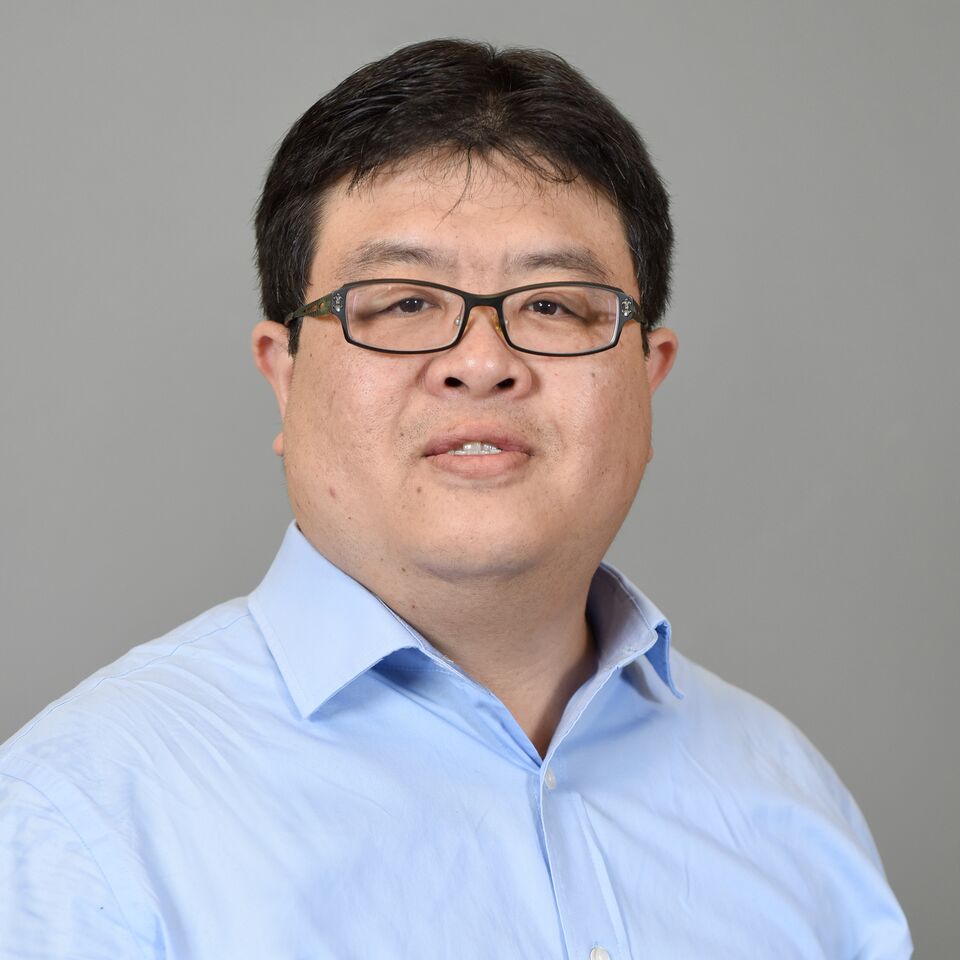
Kuei-Chun (Mark) Wang
Assistant professor
PhD, bioengineering, University of California, 2012
Areas of expertise and bio
Expertise: Vascular bioengineering, mechanobiology, nanotherapeutics for cardiovascular diseases
Kuei-Chun (Mark) Wang had several options on where to start his faculty career. He chose Arizona State University because of the resources it offers for research and the opportunities to collaborate with a multidisciplinary faculty and institutions to enhance cardiovascular disease treatment.
“Cardiovascular disease is the leading cause of death in the world, hence there is a great need to improve diagnostic and therapeutic approaches,” Wang says. “It is my goal to enhance our understanding of cardiovascular disease and apply innovative methods to accelerate the translation of discoveries into more effective therapies.”
Wang first became interested in bioengineering while studying chemical engineering as an undergraduate in Taiwan, and decided to pursue a doctoral degree abroad.
As a graduate student at the University of California, San Diego, he studied under Shu Chien, a leading scientist and bioengineer who introduced Wang to the fields of mechanobiology and cardiovascular bioengineering.
Wang’s research focused on how biophysical factors in arteries, such as the dynamics of blood flow, regulate vascular functions in health and disease. He also developed nanomedicines to prevent the progression of cardiovascular disease.
He is motivated to conduct that research by a desire to develop more effective therapeutic approaches to improve the lives of people with cardiovascular disease.
At ASU, Wang says he is excited to continue his research on applying nanotechnology to treat atherosclerosis, the most common cause of heart disease, and evaluating the efficacy of nanomedicine treatments in rodent models of atherosclerosis.
“It is an important step for us to prove that the nanomedicine approach is safe in vivo [in living models] and effective in treating atherosclerosis,” Wang says.
The research findings will help build a set of preliminary data he can use to pursue National Institutes of Health funding to explore the possibilities of this treatment method further.
Wang earned a scientist development grant from the American Heart Association in 2016, and brings with him an NIH K99/R00 Pathway-to-Independence Award to help support his research through 2021.
Besides research, Wang is passionate about teaching. He’ll be instructing courses and supervising lab work related to cellular and molecular bioengineering and physiology. Students will learn the fundamentals and principles needed to quantitatively analyze the physicochemical processes that govern cells and organ system functions.
Outside of engineering, Wang can be found hiking, cooking or watching a baseball game at the ballpark on weekends.
Troy McDaniel
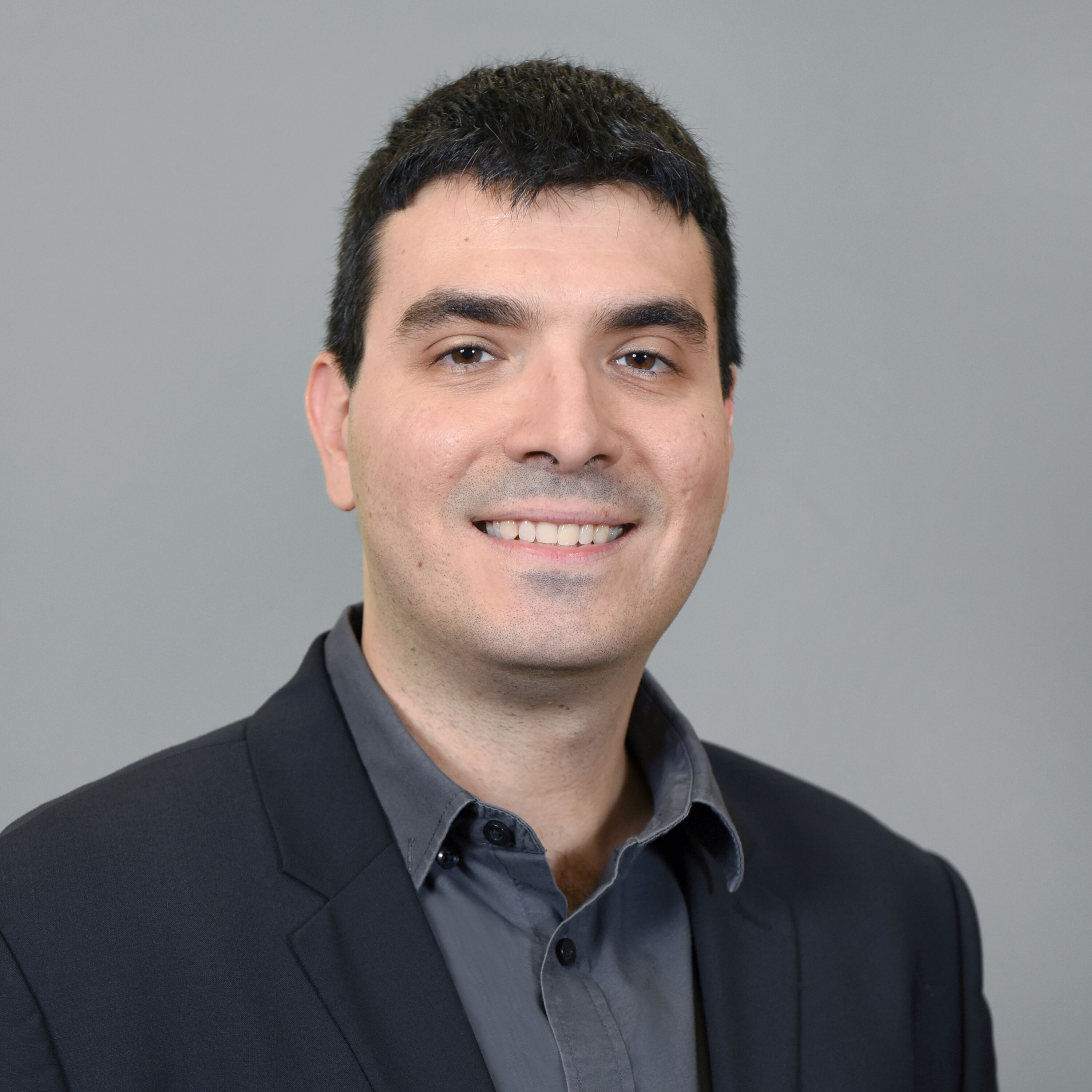
Troy McDaniel
Assistant professor
PhD, computer science, Arizona State University, 2012
Areas of expertise and bio
Expertise: Haptic perception, haptic interface design, affective haptics, robotics, human-computer interaction, smart cities, machine learning
Troy McDaniel is passionate about how the science of our sense of touch — the field of haptics — can help people with disabilities. Since he was a senior in the undergraduate computer science program at ASU, he has contributed to and published award-winning research in assistive and rehabilitative technologies as part of ASU’s Center for Cognitive Ubiquitous Computing, or CUbiC.
“The field of haptics has incredible potential for technological advancement and human augmentation,” McDaniel says. “The field is still in its infancy, so many exciting problems and questions remain.”
McDaniel’s research focus and areas of expertise extend well beyond the field of haptics, as he believes an interdisciplinary approach makes the biggest impact.
“The most exciting discoveries and innovations happen at the confluence of disciplines, so I’ve studied artificial intelligence, machine learning, computer vision, robotics, psychology and neuroscience to enrich my haptics research,” he says.
McDaniel chose and stayed at ASU for several reasons: an innovative work environment, faculty members who are passionate, supportive and eager to collaborate, and the wealth of resources and opportunities ASU provides to nurture success.
In the fall, he joins The Polytechnic School faculty to teach courses in information technology, engineering, and human systems engineering. Students taking IFT 510: Principles of Computer and Information Technology Architecture should be prepared to gain an in-depth understanding of computer architecture, system software, operating systems, networking and other important related issues in an IT context. McDaniel says it will help students build a technical foundation to understanding how many current technologies work.
In 2018 and 2019, while working as an assistant research professor in the Fulton Schools, McDaniel earned Top 5% Teaching Awards, which recognize Ira A. Fulton Schools of Engineering faculty for outstanding contributions to education. The awards were for his teaching in the School of Computing and Augmented Intelligence (SCAI – formerly CIDSE).
This semester, he will complete a research project investigating how temperature and complex vibrotactile (sensing vibration through touch) patterns influence and evoke human emotion.
“These findings will aid the design of next-generation human-computer interfaces that engage our sense of touch,” McDaniel says.
Outside of the lab, McDaniel has taken his work to competitions. In 2019, he and Keep Calm, a team of ASU graduate students in computer science and biomedical engineering, won the ASU Virtual Reality Innovation Challenge for work in VR and wearable technologies to understand and overcome anxiety.
During his down time, McDaniel enjoys reading, racquetball, table tennis and rock climbing, and he’s currently learning Japanese.
Ayan Mallik
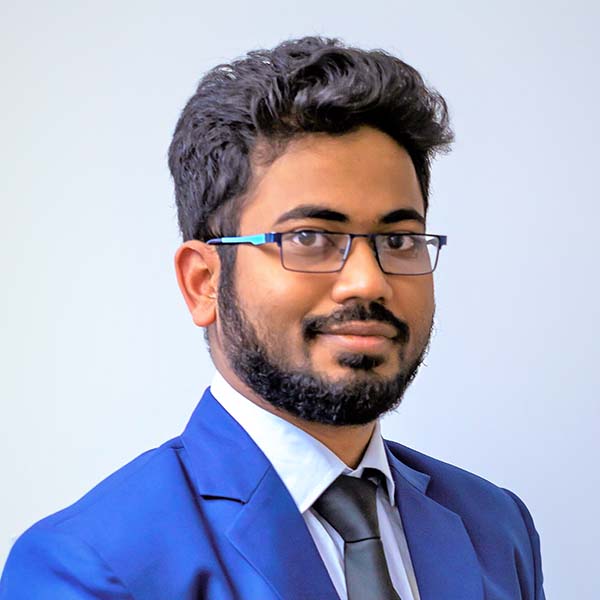
Ayan Mallik
Assistant professor
PhD, electrical engineering, University of Maryland, 2018
Areas of expertise and bio
Expertise: Power electronics, energy conversion, optimization and reliability studies of power electronic systems
Ayan Mallik sees his responsibility as an educator as more than preparing students for careers. He wants to supply the world with more highly skilled engineers to help alleviate looming threats to the well-being of the planet’s inhabitants.
Continuing population growth and sprawling industrialization are just two of the trends increasing the possibility of widespread energy crises. It’s one of several big resource shortage challenges Mallik says make it of “immense importance” to achieve advances in his field of power electronics.
His research focus is on electrical energy conversion. Innovation in that domain would have benefits in areas ranging from transportation, data center power supply, wireless power transfer, solar-energy photovoltaics and consumer electronics.
The biggest impact Mallik wants his work to have is on enabling a transition from conventional electrification systems to technologies that provide “clean, efficient and renewable energy.”
Mallik says he chose to join Arizona State University because its “interdisciplinary nature” opens the door to creative research collaborations to achieve that goal with the aid of colleagues in a variety of engineering and science specialties.
He hopes to also develop unique courses that give students both a stronger grasp of the theoretical foundations of electrical engineering and deeper insights into practical solutions to real-life power systems problems.
His students should be prepared to be pressed to “think outside the box,” to strengthen their analytical skills and develop “a passion for learning,” he says.
Mallik comes to ASU after having won more than a dozen awards in the past five years that attest to his talents as a scholar, researcher and inventor.
Most notably he earned a first-place award for his doctoral dissertation from the University of Maryland’s engineering school and the university’s Invention of the Year Award. He was also one of 10 finalists in an International Future Energy Challenge competition organized by the Institute of Electrical and Electronic Engineers.
Mallik’s pursuits outside of engineering include solving math puzzles and playing soccer, table tennis and chess.
Xiangjia (Cindy) Li
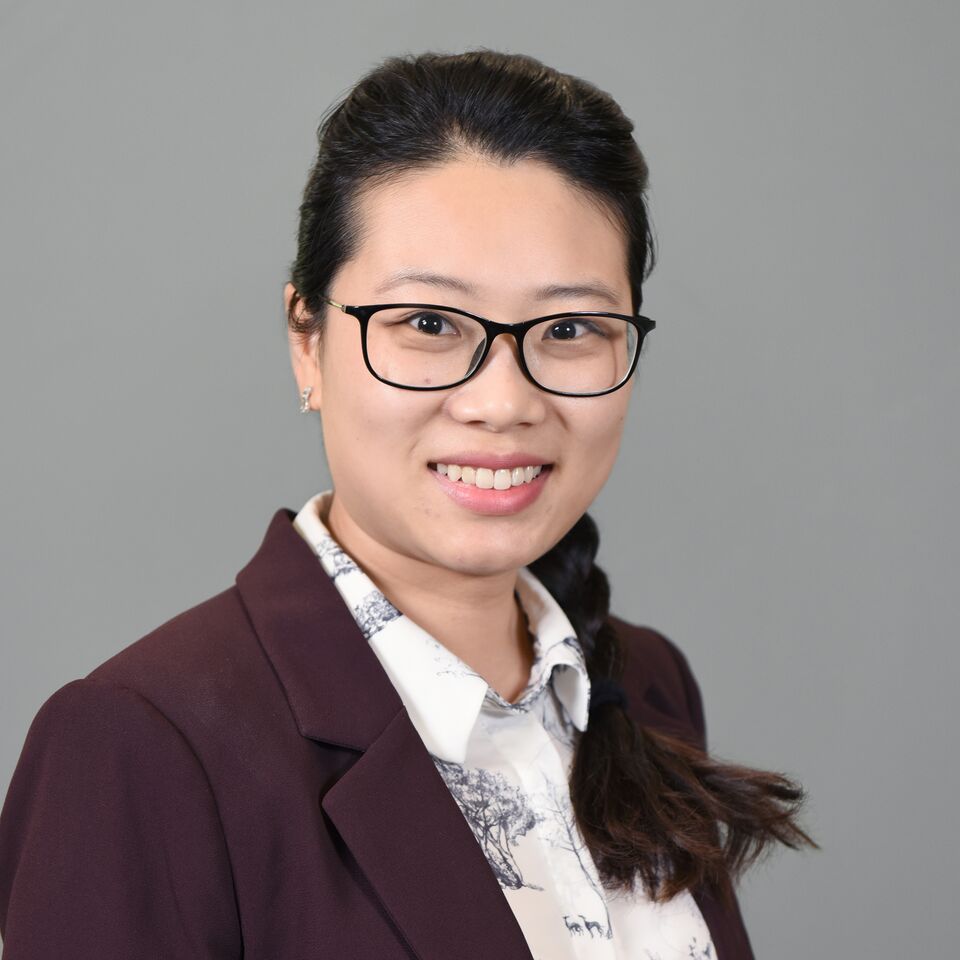
Xiangjia (Cindy) Li
Assistant professor
PhD, industrial and systems engineering, University of Southern California, 2019
Areas of expertise and bio
Expertise: Multi-scale additive manufacturing process development and design methodologies
Xiangjia (Cindy) Li has long been drawn to the problem-solving process inherent in engineering and has been able to apply that to her professional pursuits as a researcher and teacher.
“I dived into mechanical engineering, particularly the manufacturing area because the nature of making products functional in various applications has always been fascinating to me,” says Li.
Initially, she began doing research in the field “out of my curiosity about how to reliably replicate complex structures by developing material and manufacturing process. That is still one of my ongoing research topics.”
In Li’s specialty, additive manufacturing, a revolution has been taking place over the past 30 years.
“We have seen huge advances in producing complex products that are novel and sustainable,” says Li. “What keeps me curious is that we are also witnessing a paradigm shift of additive manufacturing from geometry-centered usage to function-focused applications.”
Her main research thrust this semester is to build high-performance functional medical devices by synthesizing functional requirements, bioinspired design methodologies and advanced manufacturing processes.
“What’s exciting is that in the past additive manufacturing processes were used mainly to build structural components from a wide variety of plastics, metals and rubber materials,” says Li. “Now we will move a step forward to work on the construction of functional synthetic devices based on interdisciplinary technologies and process innovations.”
Smart manufacturing is an important branch of industry 4.0 and plays an important role in new technological innovations and scientific discoveries.
“Especially in the area of smart manufacturing, engineering professors can play an essential role in converting one’s talents and personal characteristics into a lifetime interest, problem-solving know-how and creative innovations,” says Li.
She believes that having up-to-date engineering knowledge and learning the practical skills necessary in the manufacturing environment are key to the future success of students.
“As a teacher and researcher, I’m dedicated to bringing in state-of-art manufacturing technology to strengthen students’ knowledge base and to teach them the applicable skills necessary to vibrantly respond to the manufacturing industry’s many challenges.”
Heewook Lee
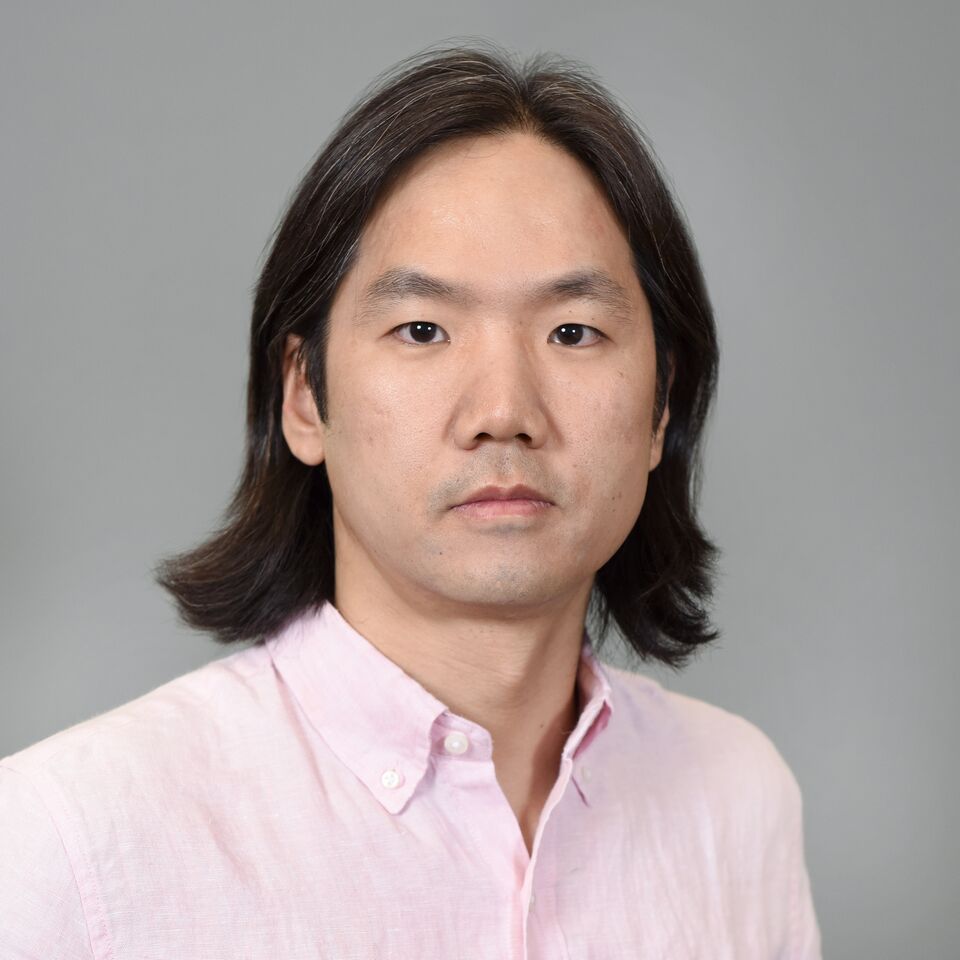
Heewook Lee
Assistant professor
PhD, computer science, Indiana University, 2015
Areas of expertise and bio
Expertise: Computational biology
Heewook Lee joins ASU from Carnegie Mellon University where he has been a Lane Fellow in the Computational Biology Department of the School of Computer Science for the past four years.
“I chose to come to ASU because of its fantastic collaborative environment for multidisciplinary researchers,” says Lee.
Lee’s current research efforts are toward developing computational techniques to study regulatory elements in the immune system.
“This is particularly important because such understanding can lead to new ways to treat cancer or autoimmune patients,” says Lee.
As a Lane Fellow at Carnegie Mellon, he worked on developing novel assembly algorithms for reconstructing highly diverse immune-related genes, including human leukocyte antigens.
Lee received a bachelor’s degree in computer science from Columbia University and obtained his master’s and doctoral degrees in computer science from Indiana University. Prior to graduate studies, he worked as a bioinformatics scientist at a sequencing center and genomics company where he was in charge of the computational unit responsible for carrying out various microbial genome projects and the Korean Human Genome project.
This semester, Lee will be teaching CSE 355: Introduction to Theoretical Computer Science, and, in the future, a course on computational biology.
“CSE 355 is a core class for all computer science undergraduate majors and it is a foundation course that paves a way to have a deeper understanding of computation,” says Lee. “My future course in computational biology will be for those students who are interested in developing or applying algorithms to solve real-world biological problems or to have a better understanding of biology in general.”
In his free time, Lee enjoys outdoor activities and is also an avid squash player.
Wonmo Kang
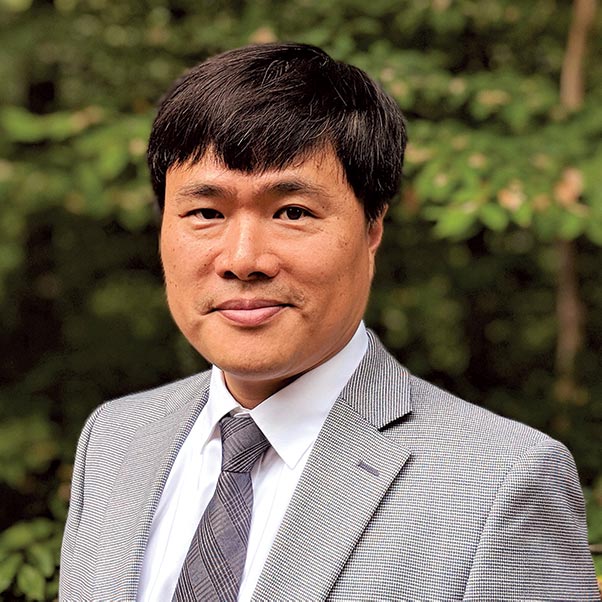
Wonmo Kang
Assistant professor
PhD, mechanical science and engineering, University of Illinois at Urbana-Champaign, 2012
Areas of expertise and bio
Expertise: Mechanics of bio- and nanomaterials for injury prediction and energy/manufacturing applications
Wonmo Kang will join the faculty of the School for Engineering of Matter, Transport and Energy in January 2020, after spending the past four years as a research scientist at the U.S. Naval Research Laboratory.
There, Kang is leveraging his scientific expertise in materials characterization and mechanics of materials, including biomaterials, to deliver cutting-edge technology and new knowledge to the U.S. Navy and Marine Corps.
Kang’s research focus varies widely – ranging from monitoring and detecting brain injuries to developing nanocarbon materials-based composite structures. These new materials could result in yarns that are 10 times stronger, but as light as state-of-the-art carbon fibers to create lightweight soft armor and high-performance composites.
Kang has always been fascinated by engineering problems that have real-world relevance. He is looking forward bringing those practical applications to his research and teaching in the Ira A. Fulton Schools of Engineering.
“ASU impressed me in many ways, including the world-renowned faculty members, a diverse student body and excellent facilities with state-of-the-art instruments,” says Kang. “[But] what struck me the most was the openness between different disciplines. I believe this openness is the key to fostering fruitful multidisciplinary collaborations, as well as providing students with unique opportunities to gain invaluable interdisciplinary experience.”
Kang realizes many students become more invested in their studies when they know the course materials are relevant to real-life problems.
“I will always emphasize the intimate link between the class materials and real-world applications so that students can appreciate the importance of the class materials,” he says. “At ASU, I will continue to pursue my research interests by carefully formulating scientific questions that will lead to innovative technology breakthroughs.”
Deliang Fan
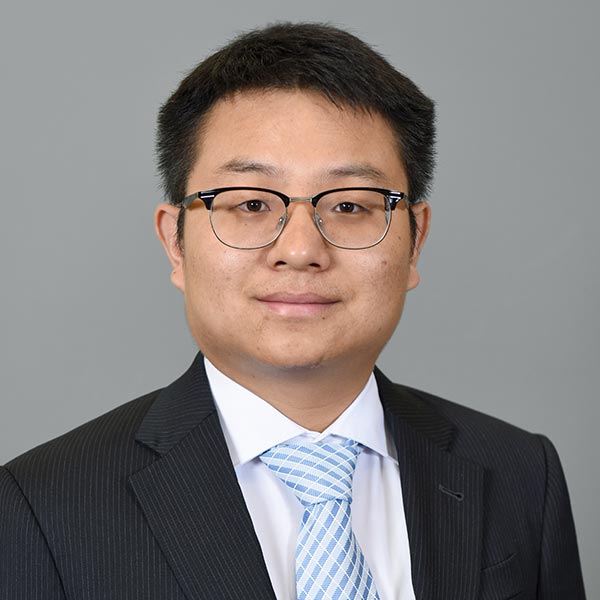
Deliang Fan
Assistant professor
PhD, electrical and computer engineering, Purdue University, 2015
Areas of expertise and bio
Expertise: Electrical and computer engineering with a focus on digital VLSI hardware-aware artificial intelligence
Arizona State University’s world-class research facilities are what brought Deliang Fan to Tempe to conduct cutting-edge research on in-memory computing circuit and architecture designs.
“This research has the potential to improve three orders of magnitude higher energy efficiency and speed over current state-of-the-art computers,” Fan says.
Fan joins ASU from the University of Central Florida where he was as an assistant professor for four years after earning both his master’s and doctoral degrees in electrical and computer engineering from Purdue University.
He will be teaching a course on digital systems and circuits and is expecting students taking his classes to have the basic knowledge of digital and analog circuits to prepare for analyzing and designing digital integrated circuits.
Fan’s research group will focus on developing energy-efficient, high-performance big data processing-in-memory circuits, architecture and systems. This work will impact extensive computing applications, such as artificial intelligence, deep neural networks, data encryption, graph processing and bioinformatics.
Fan is enthusiastic to develop high-performance and energy-efficient intelligent computers.
“Integrated circuits are a keystone of modern electronics,” he says. “They are also the heart and brains of modern computers. I am always willing to dedicate myself to pushing the limit of integrated circuit design.”
The author of more than 80 peer-reviewed international journal and conference research papers, Fan was awarded best paper awards at the 2019 ACM Great Lakes Symposium on very-large-scale integration (VSLI), the 2018 IEEE Computer Society Annual Symposium on VLSI and the 2017 IEEE Computer Society Annual Symposium on VLSI.
Ivan Sanchez Esqueda
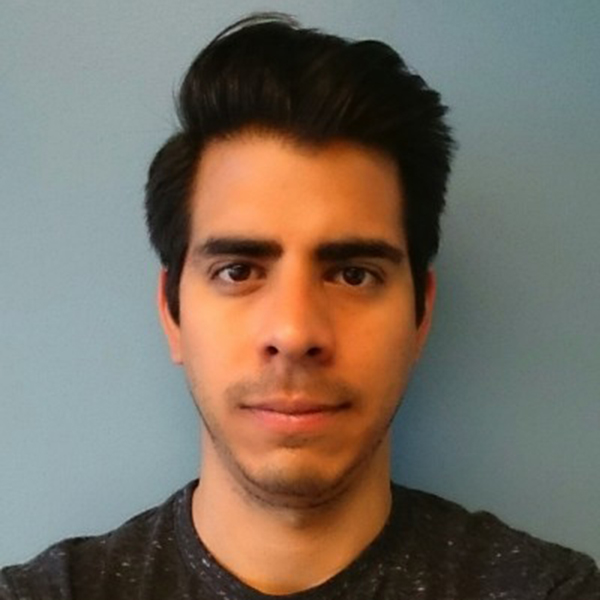
Ivan Sanchez Esqueda
Assistant professor
PhD, electrical engineering, Arizona State University, 2011
Areas of expertise and bio
Expertise: Nanoelectronics
Ivan Sanchez Esqueda is returning to Arizona State University after nearly eight years working at the University of Southern California as a research scientist. Sanchez Esqueda graduated from Ira A. Fulton Schools of Engineering in 2011 with a doctoral degree in electrical engineering, after earning a master’s degree in the same discipline.
At USC, Sanchez Esqueda led research programs that allowed him to collaborate with various faculty members and advise graduate students. He grew his interests and expertise into areas related to novel materials for various electronic applications. As he research interests expanded, so did his desire to return to ASU.
“I have admired the research and education capabilities of the engineering programs at ASU that I experienced as a graduate student, and later through collaboration with other ASU faculty,” says Sanchez Esqueda. “I was very excited when the opportunity came to pursue a faculty position at ASU. I knew it would be a great place for me to continue my academic career, and achieve my goals as a researcher and educator.”
Sanchez Esqueda says that his initial interest in engineering came from earlier enthusiasm for mathematics and physics.
“Electrical engineering is a wonderfully wide area of engineering,” he says. “The opportunity to establish connections between real world applications and fundamental nanoscale devices and material science drives my interest in the field of nanoelectronics.”
Sanchez Esqueda’s research focus is on nanofabrication, device physics, characterization and modeling, which supports the development of technologies that have applications in novel computing, memory, sensing and electronics for use in space and other extreme environments.
“One thing I like about this subject is that it allows us to study fundamental physics with practical engineering applications,” say Sanchez Esqueda. “This makes it a great area for combining education, research and innovation.”
Scott Beeman
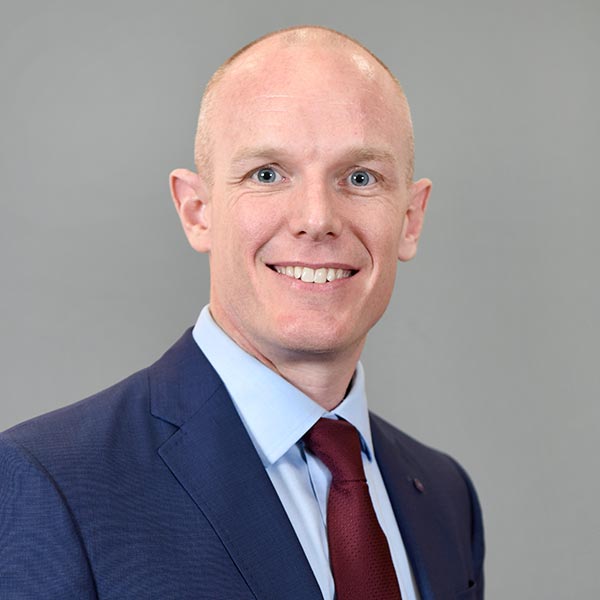
Scott Beeman
Assistant professor
PhD, biomedical engineering, Arizona State University, 2012
Areas of expertise and bio
Expertise: Quantitative MRI, biophysical modeling, imaging, metabolism
Scott Beeman has a long history with Arizona State University, dating back to the 1960s when his grandfather joined the civil engineering faculty.
“The university has always been important to me,” Beeman says, “and I have always wanted to return to ASU to help build a world-class biomedical imaging program.”
He chose to study bioengineering at ASU as a student because it allowed him to pursue his passion for the physical and applied sciences as well as do good in the world by advancing medicine.
Now returning to ASU after graduating with his doctorate in 2012, Beeman brings 16 years of expertise in magnetic resonance imaging to the faculty of the School of Biological and Health Systems Engineering, one of the six Ira A. Fulton Schools of Engineering.
“I love using imaging to quite literally see how diseases develop and progress,” Beeman says. “MRI can reveal things about health and disease that no other research methods can.”
Beeman’s current research is focused on studying how people develop type 2 diabetes. As he returns to ASU, he is particularly interested in exploring metabolic imaging using deuterium MRI. Deuterium is a stable isotope of hydrogen that can be used to watch cells take in glucose and turn it into lactate, for example.
“The concept is that one can replace hydrogen atoms with MRI-detectable deuterium atoms on metabolites like glucose,” Beeman says. “By doing so, one could potentially see where the labeled metabolites go and what the cells do with them.”
This method presents a major step forward in studying and diagnosing diseases such as cancer and type 2 diabetes.
One of Beeman’s career highlights to date is receiving a National Institutes of Health K01 career development award in 2016 as a postdoctoral researcher. He says the award launched his career as an independent investigator of diabetes-related imaging research and allowed him to study with the world’s leading metabolism, diabetes, magnetic resonance and biophysics experts. Now Beeman is bringing that wealth of knowledge and experience to ASU.
Benjamin Bartelle
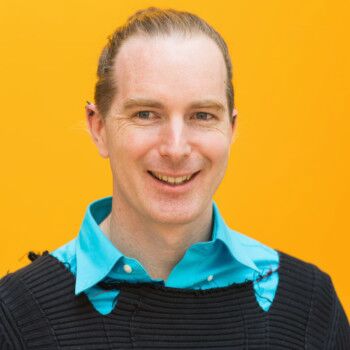
Benjamin Bartelle
Assistant professor
PhD, molecular biophysics, New York University, 2012
Areas of expertise and bio
Expertise: Molecular fMRI of neuroinflammation and degeneration, in vivo synthetic biology of reporters sensors and actuators, genetic and biomolecular circuits
“Be prepared to cross disciplines and get creative.”
This is Ben Bartelle’s teaching philosophy and the story of his career so far.
When Bartelle joins the Fulton Schools’ new group of magnetic resonance imaging faculty in January, he’ll have the opportunity to shape an emerging multidisciplinary field.
Bartelle’s focus will be on building new molecular tools for functional imaging with MRI, called molecular fMRI. He’ll be connecting multiple specialties to make that happen: understanding magnetic resonance mechanisms that produce signal and contrast, the neurobiology being studied and the synthetic biology methods needed to build the tech and get it working in a living organism.
Bartelle didn’t start out knowing he wanted to conduct MRI research. After a few career changes in biology-related sciences and arts, he joined a biotech startup, Sentigen, where he was introduced to synthetic neurobiology.
“I realized that almost all biotech research is based on assays in a dish. As sophisticated as we have gotten with tissue culture, at some point we are going to run out of questions you can answer that way,” Bartelle says. “To understand the most complex human diseases, we have to look at molecular processes inside an actual person.”
That realization was the impetus for him to pursue a doctorate in molecular biophysics. As a relatively new field of research, it was difficult for Bartelle to find funding and journals relevant to his MRI work. But after his Massachusetts Institute of Technology research team earned a perfect score on a National Institutes of Health BRAIN Initiative grant in 2016, he’s hopeful. He believes the bioengineering research community is beginning to understand the importance of molecular technologies for MRI, and that joining the growing community of MRI faculty at ASU will lead to real breakthroughs in improving human health.
Teaching courses on molecular imaging, biophysics and synthetic biology will also help him distill and formalize the concepts of the field and to foster the next generation of molecular fMRI engineers.
Over the next semester, Bartelle will be focusing his research on neuroinflammation sensors, studying the role of neuroinflammatory signals in neurodegenerative disorders.
“We have some prototype technologies that detect one of the most common inflammatory signaling molecules, nitric oxide,” Bartelle says, who will continue his work at MIT until joining the ASU faculty in spring 2020. “I’m getting the proof of concept work done here at MIT with my collaborators and adding more tools to my molecular fMRI ‘Pokédex.’ ”
Bartelle not only studies the underlying science of the body and mind, he also trains his own body and mind through the arts.
“Dance is my exercise and therapy, but it’s also a means to intuitively explore neuroscience and biology,” Bartelle says. “In its own way, movement is as much a part of my process as going to the lab.”
He strongly encourages students to explore the arts as part of a valuable education that helps you understand yourself and “become the most empowered version of yourself.”
Lecturers and Professor of practice
Lecturers and Professor of practice
Samira Ghayekhloo
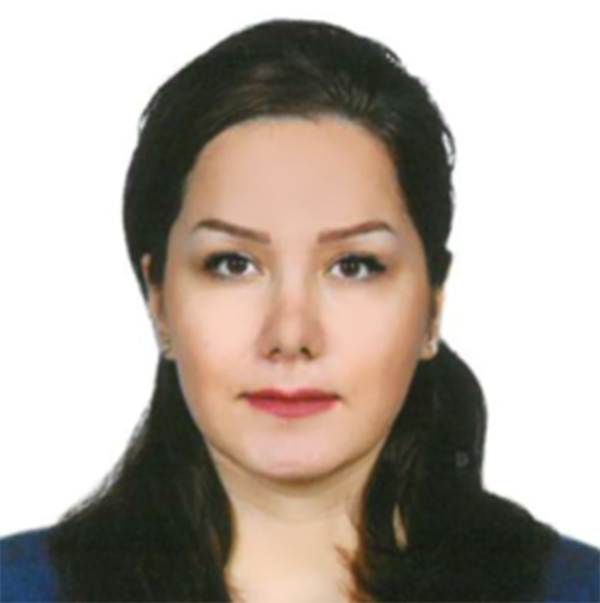
Samira Ghayekhloo
Lecturer
PhD, computer engineering, Eastern Mediterranean University, 2016
Areas of expertise and bio
Expertise: Artificial intelligence, data mining, machine learning
Samira Ghayekhloo joins the School of Computing, Informatics, and Decision Systems Engineering as a lecturer. Prior to ASU, she taught at Azad University in Iran in the Department of Computer Engineering.
With her doctoral degree in computer engineering and artificial intelligence as well as her nine years of teaching experience in fields such as object-oriented programming, data mining, data analysis, machine learning, information technology and computer science, Ghayekhloo looks forward to teaching courses at ASU starting fall 2019.
Vijay Suthar
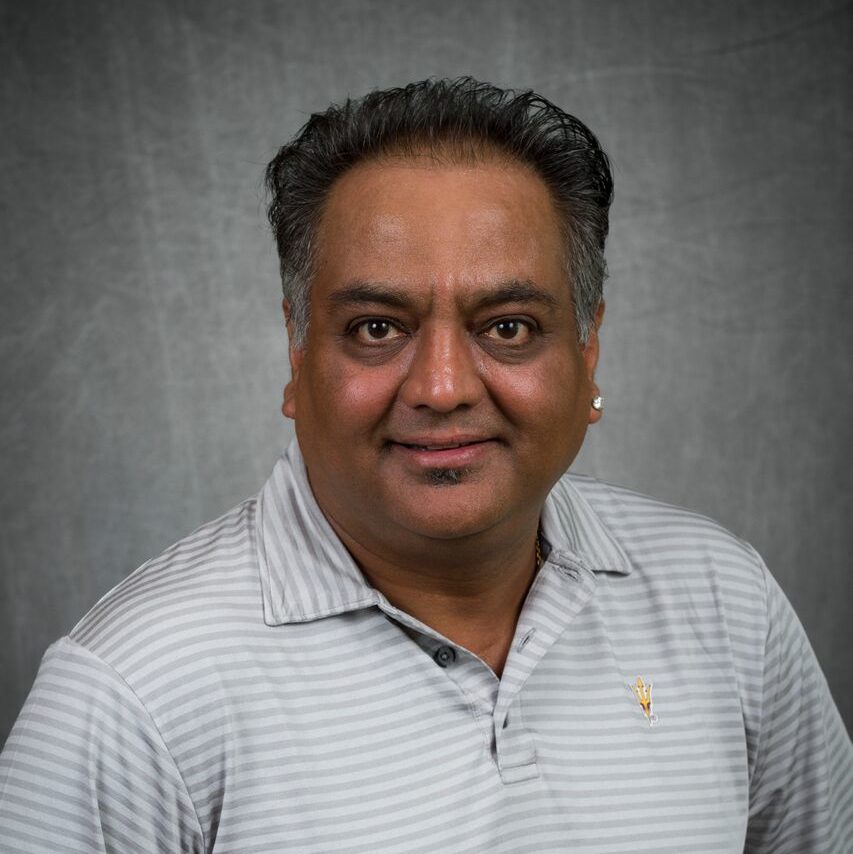
Vijay Suthar
Lecturer
PhD, electrical engineering, Stanford University, 1990
Areas of expertise and bio
Expertise: Software engineering, data communication, data analytics
Vijay Suthar is joining the School of Computing and Augmented Intelligence (SCAI – formerly CIDSE) as a lecturer to focus on his passion for teaching after retiring from a nearly 33-year career in high tech.
Although the scope of his high tech career had been intentionally been broad, the common thread throughout his career and life has been to help individuals and teams reach their potential.
With a passion for all types of problem solving, Suthar looks forward to teaching Intro to Programming, Operating Systems and Software Engineering Capstone in fall 2019.
Katerina Stefanaki
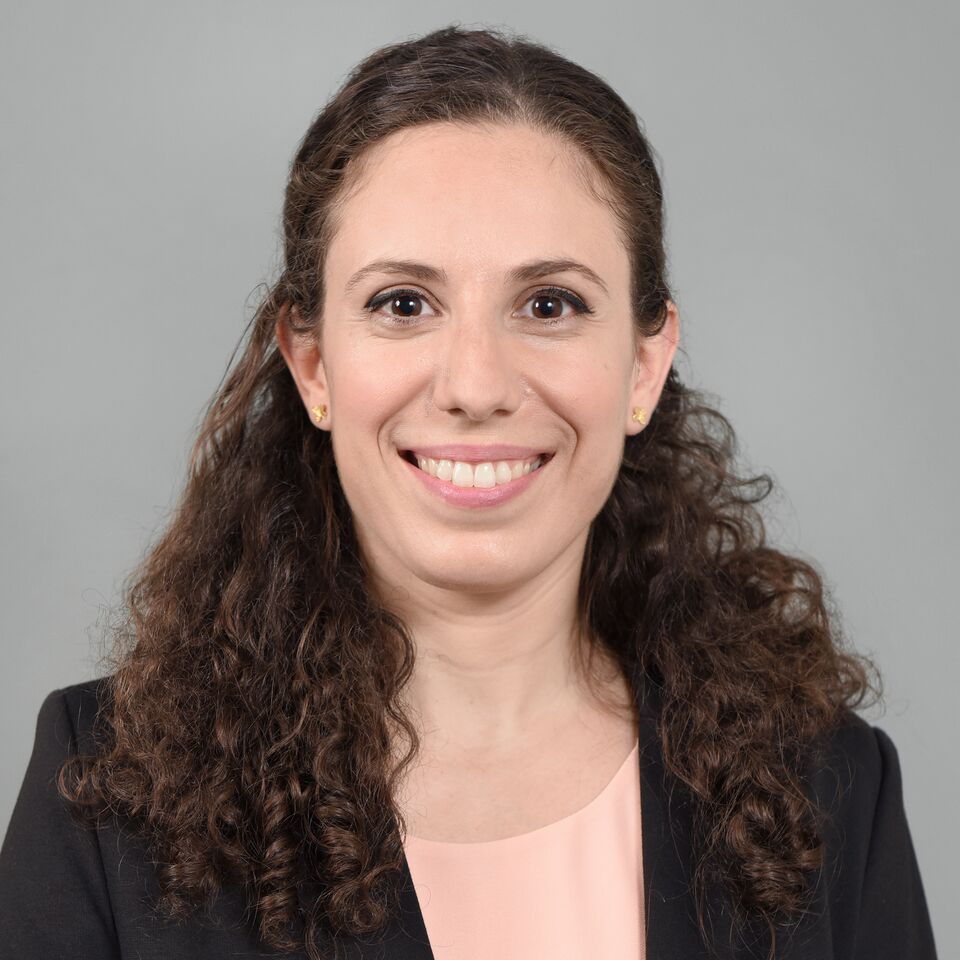
Katerina Stefanaki
Lecturer
PhD, civil engineering, State University of New York at Buffalo, 2017
Areas of expertise and bio
Expertise: Experimental mechanics, control and structural dynamics
Teaching engineering has been a major life goal for Katerina Stefanaki.
“In my view, the main mission of an educator is to help the students become independent thinkers and provide them with the necessary tools to become successful professionals in their field of study,” says Stefanaki.
Stefanaki plans to utilize active learning techniques as part of her lectures to help students grasp the class material.
“I believe that engineering students should be taught engineering principles but also learn how to apply these principles to solving real problems,” she says.
Steven Millman
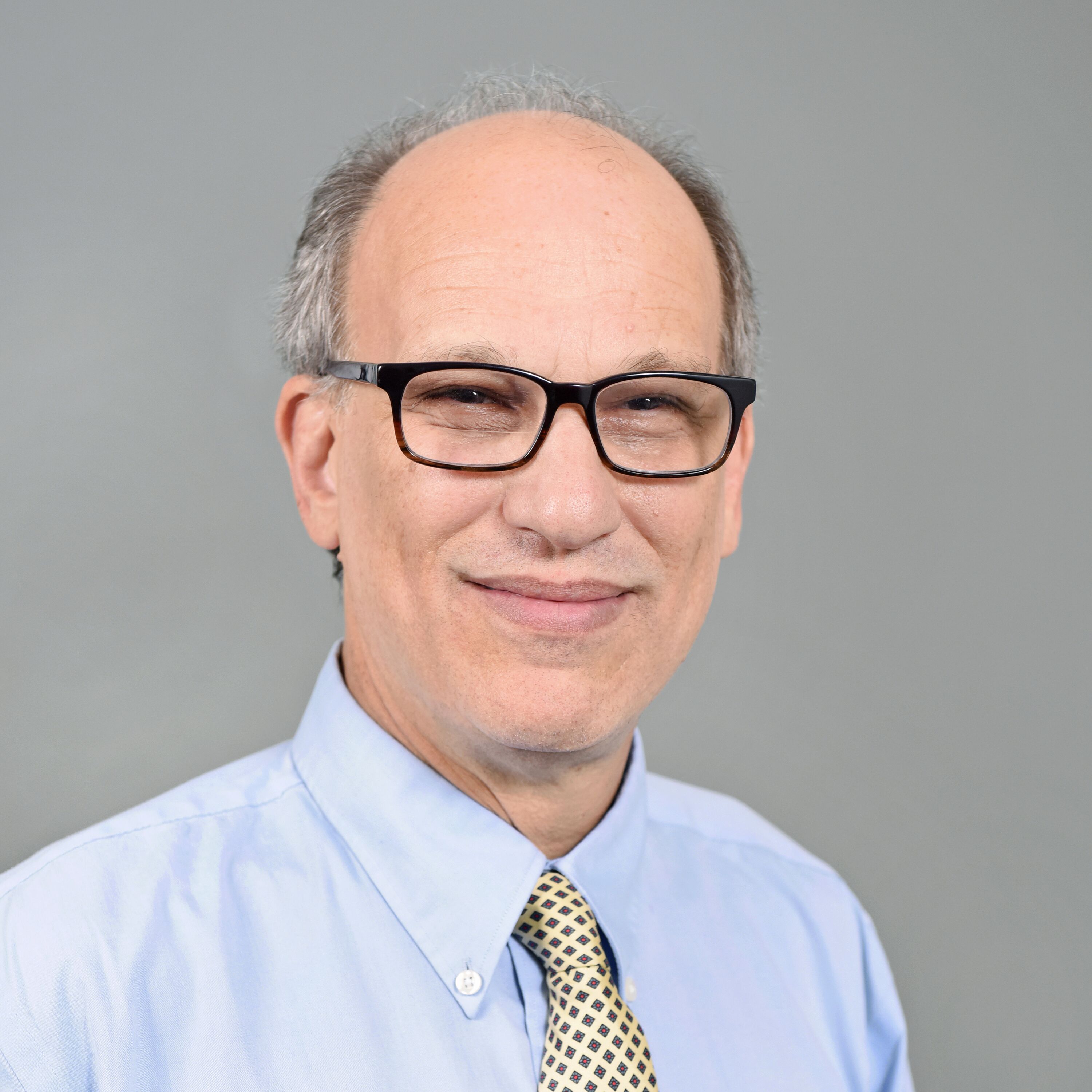
Steven Millman
Professor of practice
PhD, electrical engineering, Stanford University, 1990
Areas of expertise and bio
Expertise: Digital design
“Digital design is fun.”
This is the message Steve Millman wishes to impart to his students as he joins the School of Electrical, Computer and Energy Engineering as a professor of practice.
Having lived in the Valley of the Sun for most of his life, Millman looks forward to teaching at ASU.
With his industry experience in digital design, Millman will be teaching Digital Design Fundamentals, Python for Rapid Engineering Solutions and The ASU Experience course this fall.
Michael Machas
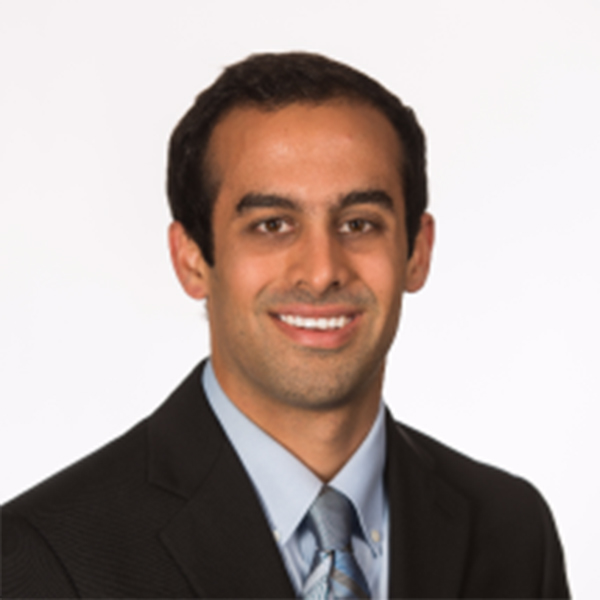
Michael Machas
Lecturer
PhD, chemical engineering, Arizona State University, 2019
Areas of expertise and bio
Expertise: Metabolic engineering, synthetic biology, molecular dynamics, engineering design
Fresh off of earning his doctoral degree, Michael Machas is excited to take on the role of lecturer in the Fulton Schools.
“I hope to help students understand what it means to be an engineer and get them in the mindset to view the world through an engineering lens,” Machas says.
Machas looks forward to sharing the engineering design principles he learned from his studies with the undergraduate students he will be teaching in Introduction to Engineering.
Barry Kutz
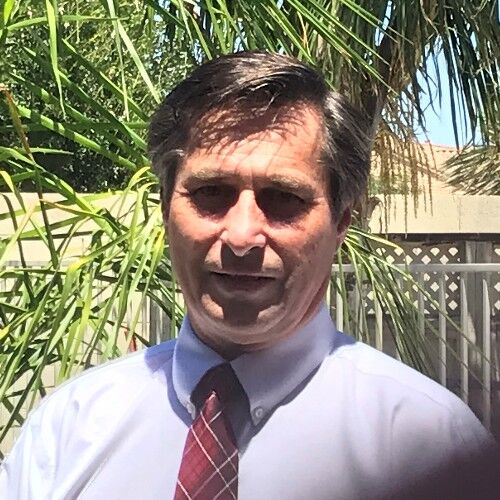
Barry Kutz
Lecturer
MS, construction management, Arizona State University, 2019
Areas of expertise and bio
Expertise: Construction management with a focus on preconstruction and design phase processes
After 30 years in the construction industry, Barry Kutz decided to retire and give back “to the program that prepared me for a successful career.”
Now he’ll be teaching in ASU’s construction program, from which he earned a bachelor’s degree in the 1980s. During his career, Kutz led a preconstruction team for McCarthy Building Companies, a major national construction company, during a long period of record-breaking growth.
In the courses he will teach or co-teach, Kutz says students will find a learning environment “where there is room for a lot of practical questions” about an industry he finds to be “exciting” and that “keeps me interested and active.”
His interests and activities away from work revolve around spending quality time with his family.
Ali Can Kucukozyigit
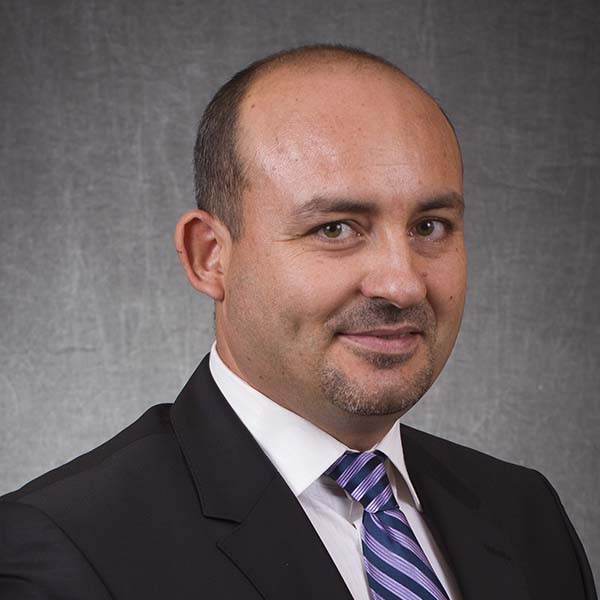
Ali Can Kucukozyigit
Lecturer
PhD, engineering management and systems engineering, Old Dominion University, 2019
Areas of expertise and bio
Expertise: Risk management, systems engineering, engineering management
“What can go wrong?” is a question Ali Kucukozyigit urges all of his students to consider in their careers as the field of engineering becomes increasingly complex.
Kucukozyigit joins the School of Computing and Augmented Intelligence (SCAI – formerly CIDSE) as a lecturer to teach risk management and introduction to systems engineering. He’ll help students identify and assess risks, and understand the concepts and processes of systems and how they can be governed.
Mark Huerta
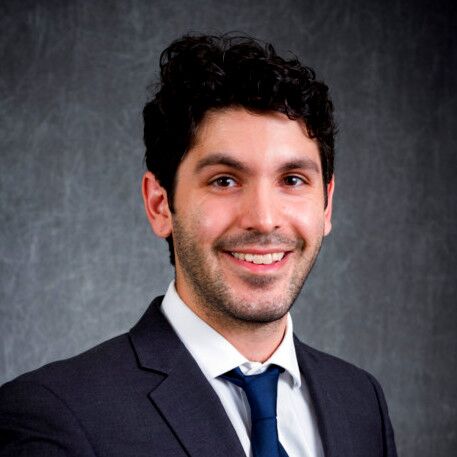
Mark Huerta
Lecturer
PhD, engineering education systems and design, Arizona State University, 2019
Areas of expertise and bio
Expertise: Engineering education research, human-centered design, humanitarian engineering, biomedical engineering
As an ASU undergraduate, Mark Huerta co-founded and led an Engineering Projects in Community Service endeavor that became 33 Buckets, a nonprofit organization that provides clean water to underserved communities.
Now Huerta is excited to return to ASU as a lecturer to teach Introduction to Engineering and EPICS design courses.
Years of working to expand 33 Buckets “has provided me with a wealth of experiences” like entrepreneurship and innovation, non-profit leadership and management and humanitarian engineering, says Huerta.
He hopes to help students cultivate a growth mindset toward their pursuit of engineering careers.
Michael Findler
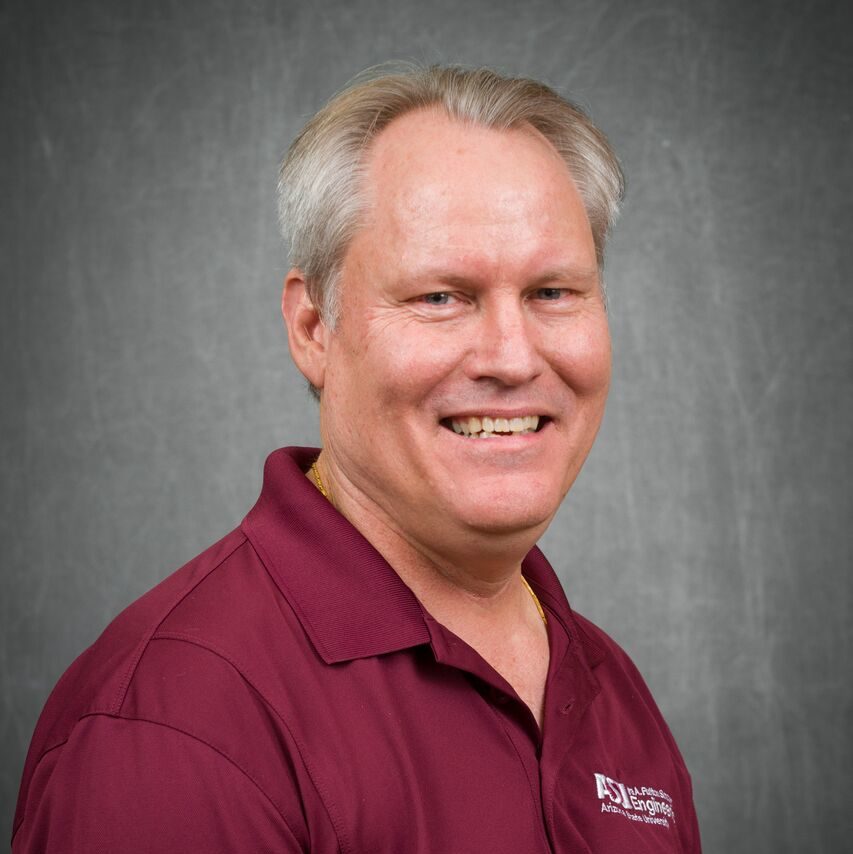
Michael J. Findler
Lecturer
PhD, human factors engineering, Wright State University, 2011
Areas of expertise and bio
Expertise: Software engineering
Michael J. Findler is a Sun Devil at heart. A former student of Arizona State University, he looks forward to joining the School of Computing and Augmented Intelligence (SCAI – formerly CIDSE) as a lecturer.
Using his doctoral degree in human factors engineering and experience in software engineering, Findler will be teaching upper-level and graduate courses in software engineering in fall 2019.
Michael Cirillo
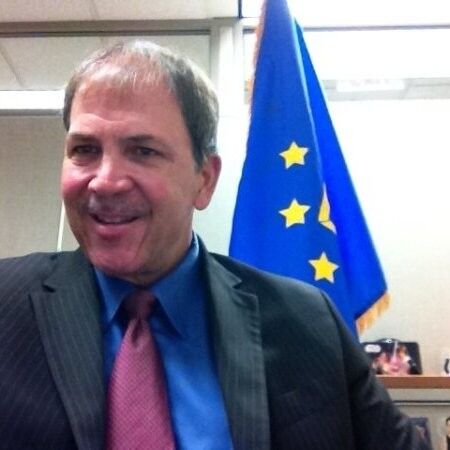
Michael Cirillo
Lecturer
MBA, University of Maryland University College, 2012
Areas of expertise and bio
Expertise: Aviation, air traffic management
Michael Cirillo comes to Arizona State University with 41 years of experience in aviation and aerospace, having been an air traffic controller and an executive with the Federal Aviation Administration.
“I can think of no more rewarding way to spend my final years in the industry than to launch the next generation of aviation professionals,” says Cirillo.
Cirillo will be teaching classes on terminal air traffic management, where students will learn not only the policies and procedures associated with air traffic control, but also the role aviation plays in the economy and the quality of our lives.
“ASU is the premier, FAA-endorsed Collegiate Training Initiative program in the country,” he says. “It is an honor to join the ASU faculty.”
Maria Chavez-Echeagaray
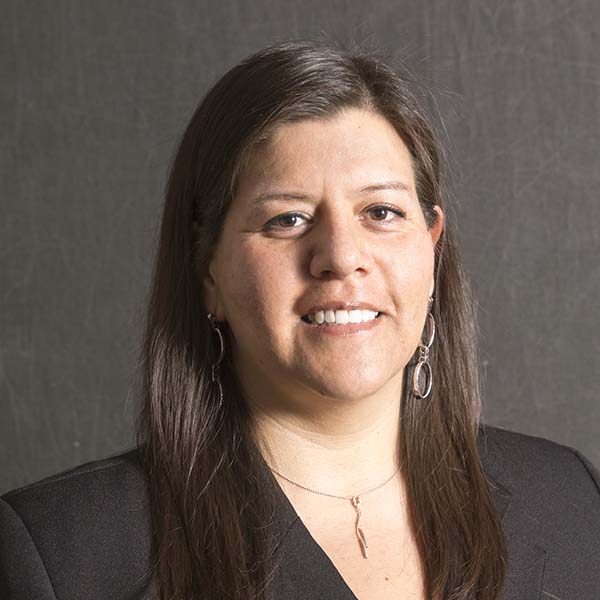
Maria Chavez-Echeagaray
Lecturer
PhD, computer science, Arizona State University, 2018
Areas of expertise and bio
Expertise: Affective computing, engineering education, user experience, human behavior, human-computer interfaces
For Maria Elena Chavez-Echeagaray, the opportunity to have an impact on the development of a new generation of engineers inspired her passion for teaching.
She looks forward to joining the Fulton Schools in fall 2019 as a lecturer for Introduction to Engineering courses and The ASU Experience.
“I invite my students to be prepared to discover and experience all ASU and its particular engineering programs have to offer to support their development as future professionals and to make the most of those opportunities,” Chavez-Echeagaray says.
Apollo Arquiza
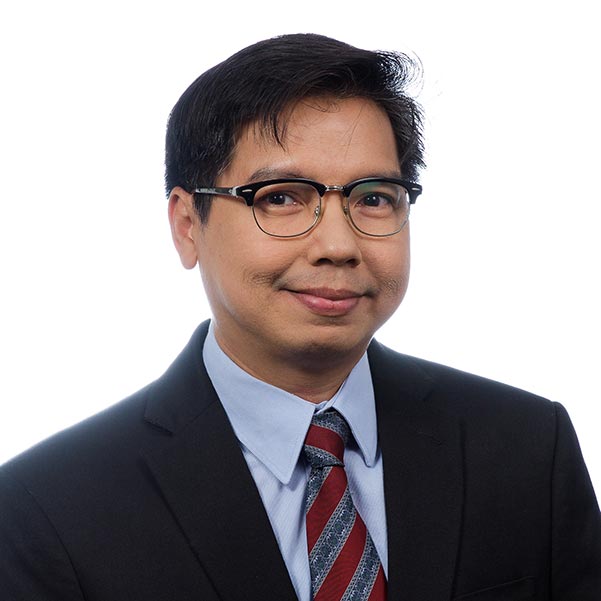
Apollo Arquiza
Lecturer
PhD, biological and environmental engineering, Cornell University
Areas of expertise and bio
Expertise: Design and simulation of biomedical devices, modeling of biomedical processes, thermodynamics, advanced life support for space exploration
Apollo Arquiza brings a background in molecular biology, design and simulation of biomedical devices and the study of growth kinetics of species growing in microbial communities in waste. While earning his doctorate, he researched the effect of astronaut-generated garbage on health, water recovery and microbial stabilization for life support in space exploration.


